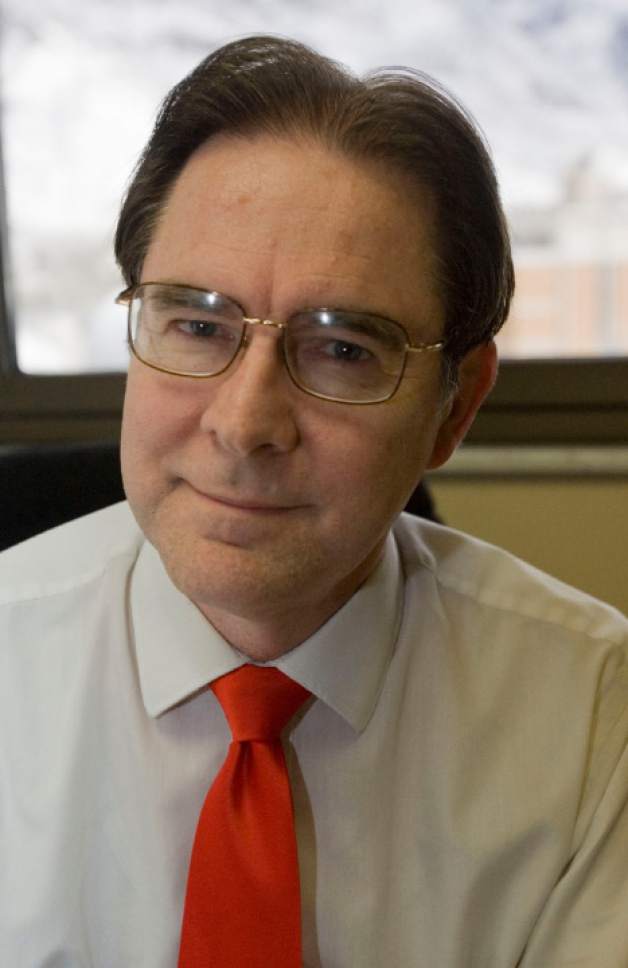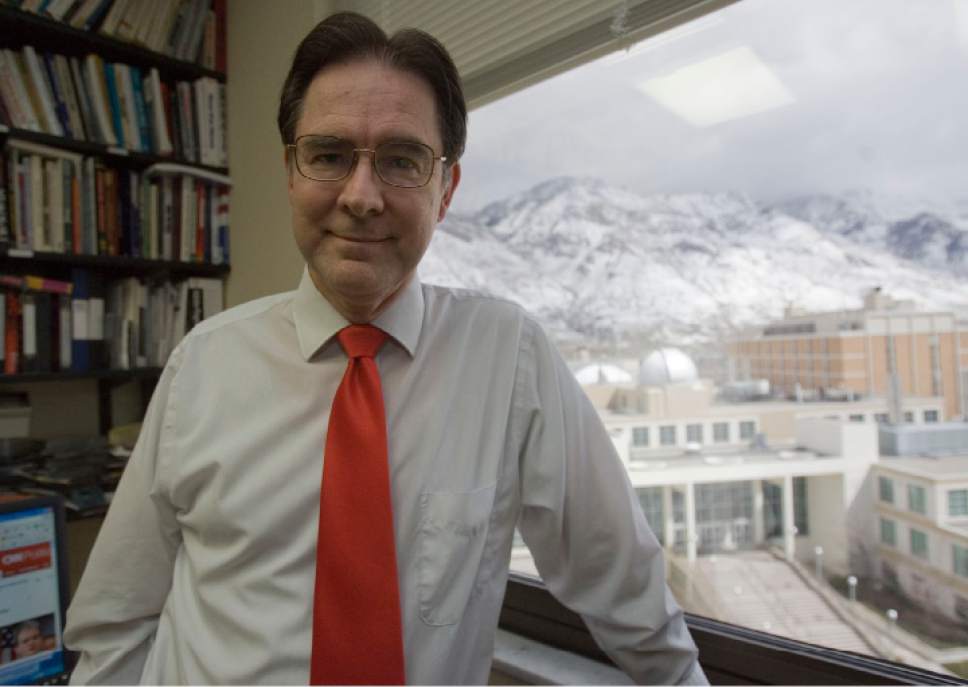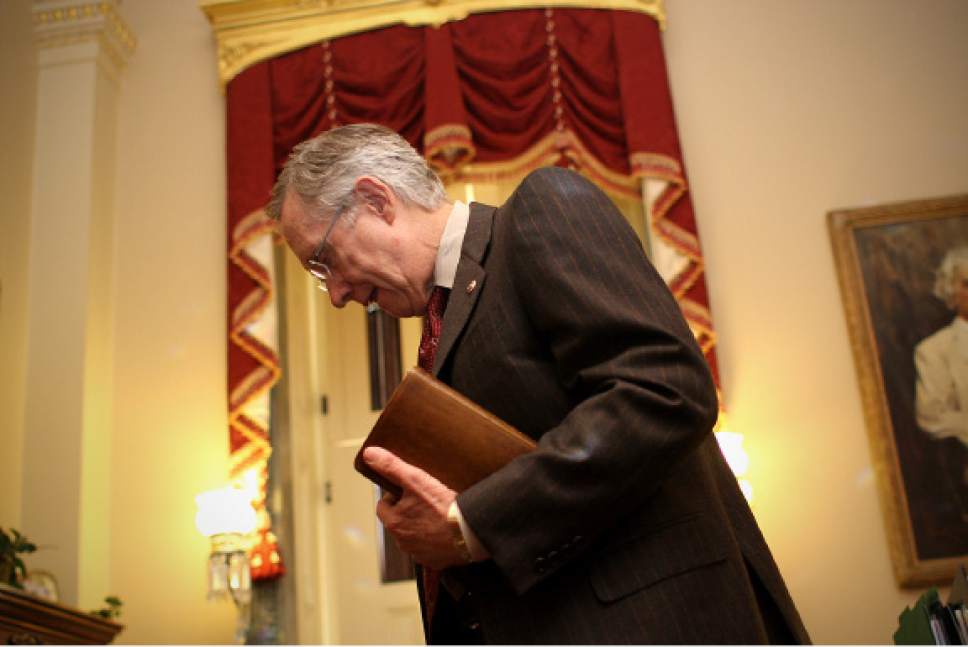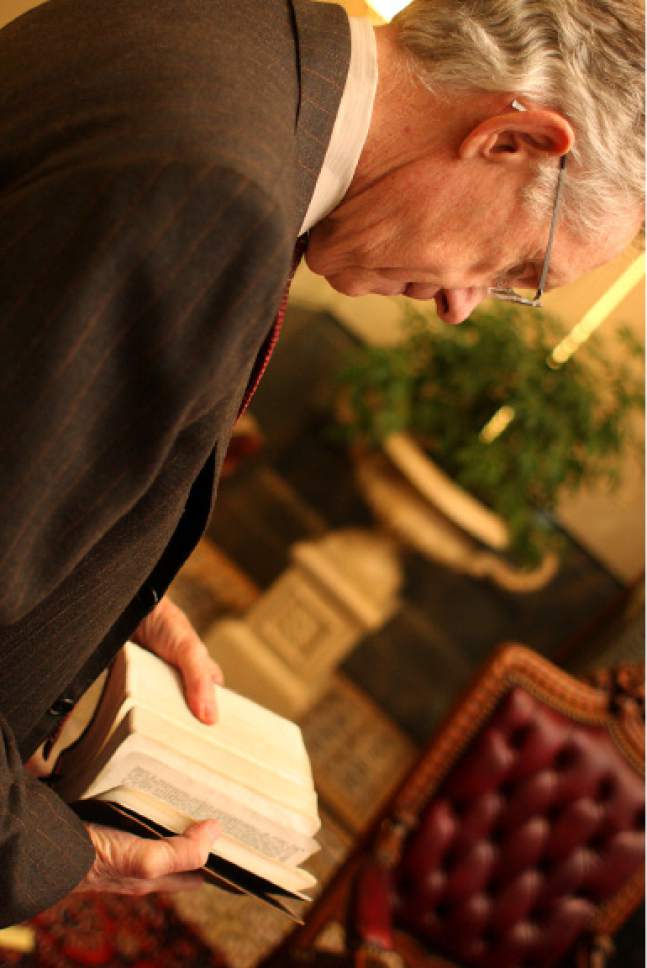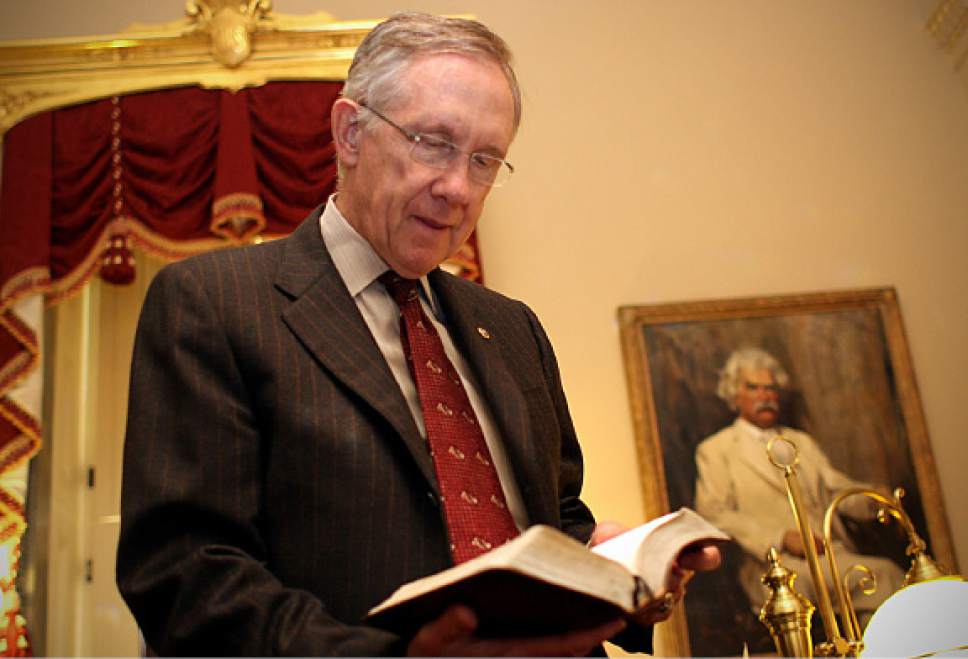This is an archived article that was published on sltrib.com in 2014, and information in the article may be outdated. It is provided only for personal research purposes and may not be reprinted.
In the aftermath of this week's elections, an LDS bishop in Los Angeles set off political fireworks by asserting in a blog that Mormon Sen. Harry Reid was not worthy to enter one of the faith's temples for his support of Democratic Party stances.
The response to the piece, "Good Riddance to Harry Reid, the Mormon Senate leader," from many Latter-day Saints on social media — and even the Utah-based faith's public-affairs arm — was immediate and critical.
"Members of The Church of Jesus Christ of Latter-day Saints are, of course, entitled to express their own political opinions," spokesman Dale Jones said in a statement. "However, publishing such views while using a title of a church officer, even if only as a leader of a local congregation as in this case, is entirely inappropriate."
LDS bishop Mark Paredes conceded Friday that, in retrospect, he could have worded his concerns about Reid, a fellow believer, "more artfully."
Writing on his long-standing blog at the Jewish Journal, Paredes began by describing one of the "temple recommend" questions (meant to gauge adherence to Mormon beliefs and practices) that asks members if they "support, affiliate with or agree with any group or individual whose teachings or practices are contrary to or oppose those accepted by the [LDS Church]." He then detailed his beliefs that Democrats' support for same-sex marriage and abortion rights — along with Reid's shilling for the gambling industry — ran in opposition to the church's positions on those issues.
"I have no problem with an average Mormon in the pew who supports the Democratic Party because one of its issues or positions appeals to him," Paredes wrote. "However, occupying a national Democratic leadership position is an entirely different matter."
Reid may be a "wonderful man," Paredes added, but not "a man of serious religious faith."
With the Republicans capturing the Senate, Reid, D-Nev., will lose his position in January as Senate majority leader. No other Mormon has held a higher elective national office.
In response to the column, LDS Democrats cried foul over Paredes using his lay position as a bishop to judge a person for his political beliefs, especially given the church's efforts to remain politically neutral.
"A temple recommend interview is more like a self-assessment of worthiness," Brigham Young University political science professor Richard Davis wrote in an email. "If the individual answers the questions in the expected way, the local church leader is not at liberty to interpret the questions privately to deny someone a temple recommend based on their identification with a particular political party."
Besides, political parties do not fully correlate with LDS principles, especially in a global setting, said Davis, author of "The Liberal Soul: Applying the Gospel of Jesus Christ in Politics."
"As the church expands outside of the Intermountain West, and particularly to U.S. urban areas and other nations in areas such as Latin America and Europe," he said, "the average member will likely hold leftist views since members tend to be drawn more from the lower- and middle-class strata of society."
Davis finished behind former Salt Lake County Mayor Peter Corroon earlier this year in a bid to head the Utah Democratic Party.
Although the overwhelming majority of U.S. Mormons are conservative and Republicans, the church itself trumpets its neutrality on partisan issues and notes that "principles compatible with the gospel may be found in various political parties and candidates."
The neutrality statement on the faith's website also points out that Mormon politicians need not line up behind church stances, though many may do so.
"These officials still must make their own choices based on their best judgment," the document states, "and with consideration of the constituencies whom they were elected to represent."
Since the column appeared, Paredes has had many conversation with Mormons "at every level" and taken their concerns to heart, he said, adding a disclaimer at the end of his essay stating that "Mormon bishops aren't spokesmen for the LDS Church" and noting that he alone was responsible for his opinions.
It was Reid's powerful place within the Democratic Party that Paredes felt was worth questioning.
"He's in the 'First Presidency' of the party, the most powerful Democrat after the president," the bishop said. "I would like to ask him how he reconciles his party's support of principles like gambling with his church membership."
Paredes acknowledged he is not in a position to assess Reid's temple worthiness and said he likely wouldn't deny the Nevada senator one. Nor does the Southern California bishop know or care about the political leanings of those in his Mormon congregation.
"There are no politics in my ministry," he said. "I have given recommends to Democrats and Republicans. It doesn't come up in the interview."
Twitter: @religiongal


